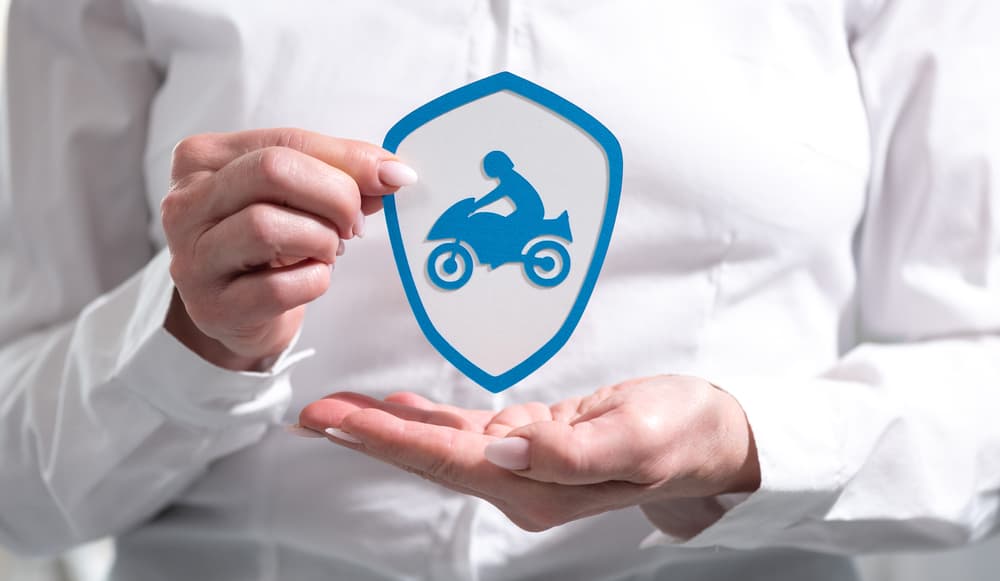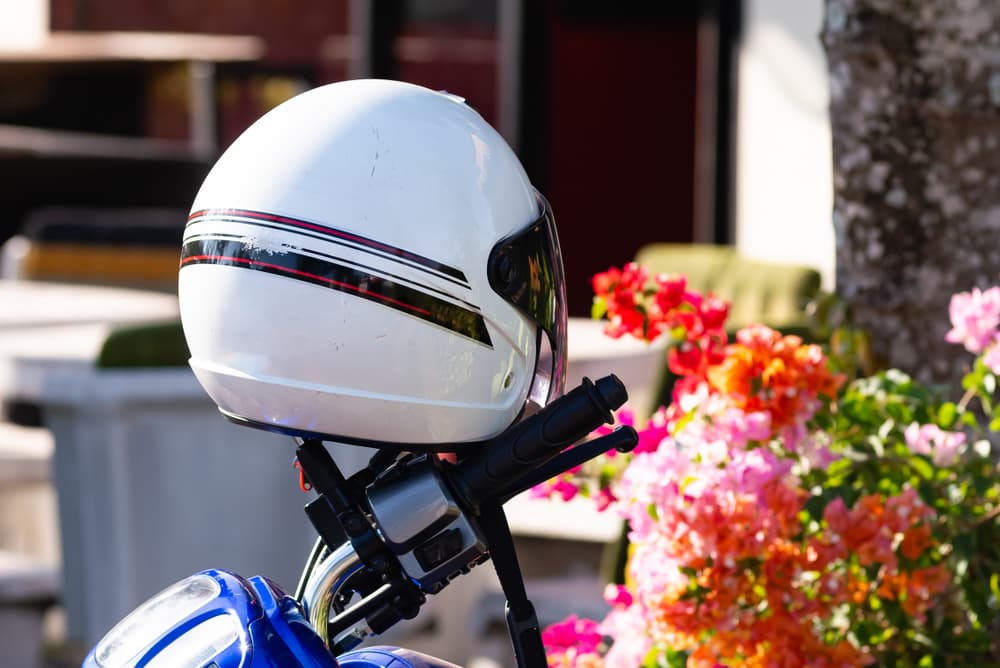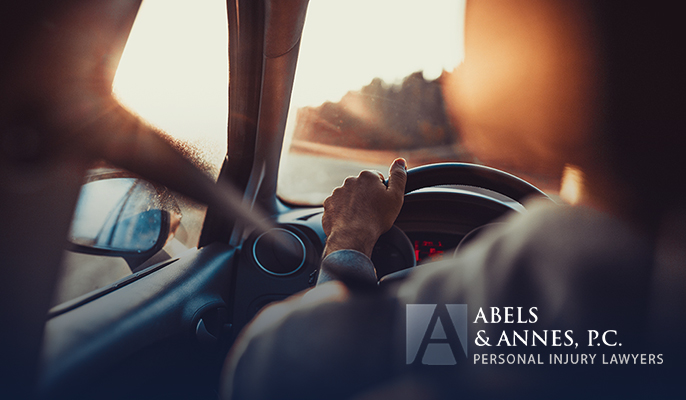If you ride a motorcycle in Chicago, you already know the risks. Between unpredictable traffic, distracted drivers, and rough road conditions, even the most experienced rider is vulnerable. That’s why many motorcyclists start asking an important question: What type of motorcycle is the safest to ride?
It’s a reasonable question—and a good one. But here’s the truth: while some bikes offer better safety features, no motorcycle is truly “safe” in the way a car or truck is. There’s no protective frame, no airbags, and no crumple zones. When something goes wrong, the rider almost always suffers more than the driver.
That doesn’t mean you’re powerless. Certain motorcycles may reduce the risk of serious injury, especially in low-speed situations or controlled environments. But when it comes to sharing the road with careless or aggressive drivers, even the safest bike can’t prevent a crash caused by someone else’s mistake.
At Abels & Annes, P.C., we’ve seen firsthand how devastating these accidents can be. And when they happen, it’s not just about what you were riding—it’s about holding the at-fault party accountable.
What Is the Safest Type of Motorcycle?

There’s no single motorcycle that guarantees safety, but generally speaking, bikes with lower engine power, upright seating positions, anti-lock braking systems (ABS), and good visibility features tend to be considered safer, especially for everyday street riding. Standard bikes, cruisers, and touring motorcycles often fall into this broader category.
Why? These types of motorcycles usually promote better control, smoother handling, and more predictable performance. They're not built for speed or stunts. They're built for commuting, weekend rides, or long-distance trips—situations where caution and comfort are priorities.
That said, even a so-called "safer" motorcycle won't protect you from distracted drivers, sudden lane changes, potholes, or drivers who don’t check their mirrors before turning. In a city like Chicago, where conditions are unpredictable and traffic is aggressive, your safest choice is less about the bike itself and more about what you’re up against on the road.
We’ve worked with motorcyclists who did everything right—wore the right gear, rode defensively, and kept to the speed limit—and still ended up in the ER because another driver made a careless decision. Choosing the right bike helps, but staying safe also depends on what everyone else on the road is doing.
Common Motorcycle Accident Injuries
Some common severe injuries in a motorcycle crash include:
- Broken bones
- Road rash
- Internal injuries
- Spinal cord injuries
- Traumatic brain injuries
- Lacerations
How Motorcycle Design Affects Rider Safety
When it comes to motorcycle design, safety isn't just about looks or performance—it's about how the bike responds in a real-world environment. Features like weight distribution, center of gravity, braking systems, and seat height can all impact how well a motorcycle handles in sudden or emergency situations.
Here are some key features often associated with safer bikes:
- Lower engine displacement – Less power means more predictable control, especially for newer riders.
- Anti-lock Braking System (ABS) – Helps prevent skidding and loss of control during sudden stops.
- Upright seating – Promotes better posture and visibility, reducing fatigue and increasing road awareness.
- Standard or cruiser frames – Typically offer better stability than lighter, sport-style models.
- Large reflectors and headlights – Improve visibility to other drivers, which is especially important in urban areas.
Still, none of these features eliminate risk. Chicago roads can be full of surprises—uneven pavement, sudden stops, left turns across lanes—and the safest design in the world won’t stop a collision if another driver isn’t paying attention.
Your motorcycle can help you react more effectively, but it’s no substitute for accountability when someone else causes the crash.
Why Even “Safe” Motorcycles Can’t Prevent a Crash
One of the most important things to understand is that you can do everything right on the safest bike available—and still get hurt because someone else made a bad decision. We’ve seen it happen over and over again. A motorcyclist follows every rule, wears full gear, and rides defensively. But a distracted driver checks a text, drifts into a lane, and suddenly that rider is on the pavement.
That’s the reality of riding in a city like Chicago. Between construction zones, congested intersections, and drivers in a hurry, there’s only so much control a rider has. Safety features help, but they can’t guarantee protection.
After a crash, insurance companies often try to shift the blame onto the rider. They’ll say you chose a “dangerous” motorcycle or should have seen the car coming. But the truth is, motorcyclists aren’t the problem—careless drivers are.
At Abels & Annes, P.C., we don’t accept excuses. If you’ve been injured because another driver failed to share the road safely, your motorcycle choice shouldn’t be used against you. The focus should be on the driver’s actions, not the kind of bike you were riding.
Does Helmet Use Matter More Than Motorcycle Type?
In most serious motorcycle crashes, the type of bike you’re riding matters less than whether you’re wearing a helmet. While Illinois doesn’t require helmets by law, the data is clear—helmets save lives and reduce the severity of head injuries.
A full-face, DOT-approved helmet can protect you from one of the most dangerous outcomes in a motorcycle crash: a traumatic brain injury. Head trauma is one of the leading causes of motorcycle-related deaths, and even when it isn’t fatal, it can lead to long-term memory loss, cognitive issues, or changes in personality and mood.
No matter how “safe” your motorcycle is considered—whether it’s a cruiser, a standard commuter bike, or a high-end touring model—a helmet does more to protect you in a crash than almost any feature the bike has. That’s especially true in cities like Chicago, where accidents often involve head-first impact with pavement, curbs, or vehicles.
We’ve worked with riders who credit their helmet with saving their life. And we’ve worked with families who lost loved ones in crashes that may have ended differently if a helmet had been worn. The takeaway is simple: the smartest gear on the road is the one you wear on your head.
Why Chicago Roads Make Motorcycle Safety Harder
Even the most careful motorcyclist has a hard time staying safe on streets that are working against them—and in Chicago, that’s a daily reality. While the city is working to improve infrastructure, the truth is that potholes, uneven surfaces, and unpredictable traffic patterns create constant hazards for riders.
Certain neighborhoods and routes pose higher risks:
- Lower Wacker Drive can be dark, slick, and difficult to navigate on two wheels
- Lake Shore Drive is fast-moving and often congested with aggressive lane changes
- Side streets in older neighborhoods, like Logan Square or Humboldt Park, often have poor lighting and broken pavement
- Left turns on busy intersections, especially where there’s no protected arrow, are a constant danger
These road conditions may not faze someone in an SUV, but for a motorcycle rider, a single bump or sudden stop can mean disaster. What makes it worse is that other drivers often don’t give riders the space or attention they deserve.
Even if you choose a heavier, more stable bike or ride with extra caution, you can’t control the infrastructure or the drivers around you. That’s why riders in Chicago need legal backup when something goes wrong, not just safer bikes.
What to Do If You Were Hurt in a Crash—No Matter What You Ride
If you’ve been injured in a motorcycle crash, the kind of bike you were riding shouldn’t define your case—what matters is who caused the crash and how it impacted your life.
Whether you were on a small commuter bike or a fully equipped touring model, the legal system doesn’t reward you for choosing one style over another. What it should do is hold negligent drivers accountable.
After a crash, it’s important to seek medical treatment right away—even if you think the injury isn’t serious. Many motorcycle injuries develop over time. What feels like a bruise today could be a fracture or internal injury tomorrow.
Then, contact a personal injury lawyer who understands how to build a motorcycle accident case. At Abels & Annes, P.C., we’ve helped riders across Chicago recover after crashes caused by:
- Distracted drivers
- Left-turn collisions
- Speeding or failure to yield
- Dooring incidents
- Road hazards and poor maintenance
We handle the insurance companies, the documentation, and the legal fight—so you can focus on healing. Even if you were riding the “safest” bike on the market, it won’t protect you from a driver who isn’t paying attention. That’s where we come in.
What a Personal Injury Claim Can Do for You
A motorcycle accident doesn’t just leave you with bruises—it can leave you facing months or even years of consequences. From hospital bills to missed paychecks, the financial burden adds up fast. That’s where a personal injury claim comes in. It’s your legal right to seek compensation when someone else’s negligence causes you harm.
In a motorcycle crash, a personal injury claim can help you recover damages for:
- Emergency medical treatment
- Ongoing care, like physical therapy or specialist visits
- Lost wages and future lost earning potential
- Pain and suffering
- Emotional distress
- Damage to your motorcycle or riding gear
It’s not just about recouping money—it’s about making sure you’re not left carrying the burden of someone else’s mistake. A personal injury claim can be the difference between struggling to pay your bills and getting the support you need to recover and move forward.
At Abels & Annes, P.C., we fight to make sure you’re treated fairly. Insurance companies will try to downplay your injuries or suggest you were to blame. We don’t let that happen. You focus on healing—we’ll focus on holding the right people accountable.
How Fault Is Determined in a Motorcycle Crash
In any personal injury case, including motorcycle accidents, determining who is legally responsible—or “at fault”—is one of the most important parts of the process. It’s also one of the most contested. Drivers who hit a motorcyclist are quick to deny responsibility. Insurance companies are even quicker to suggest the rider did something wrong.
But fault is not based on assumptions. It’s based on facts, evidence, and legal standards.
We look at factors like:
- Police reports and crash scene documentation
- Video footage, if available (including traffic cams and dashcams)
- Eyewitness statements
- Vehicle damage and road conditions
- Medical records that reflect the mechanics of the injury
Sometimes, even a seemingly minor detail—like the angle of impact or the position of a turn signal—can make or break a case. That’s why we always conduct an independent investigation, regardless of what the insurance company or other driver says.
If the other driver failed to yield, made a sudden turn, opened a car door without checking, or simply wasn’t paying attention, they should be held accountable. And if fault is shared, Illinois law still allows you to recover damages, as long as you weren’t more than 50% at fault.
Why You Need Legal Help Sooner Than You Think
After a motorcycle accident, time is not on your side. The longer you wait to speak with a lawyer, the more opportunities the insurance company has to build their case against you, and the harder it becomes to gather the evidence needed to support yours.
Here's what can start to slip away in just a few weeks:
- Traffic camera footage may be erased
- Witnesses may forget what they saw, or become difficult to contact
- Vehicle damage may be repaired before it’s photographed or analyzed
- Medical records may become harder to connect directly to the crash
You don’t have to file a lawsuit the same day as your crash, but you should start the process of protecting your rights immediately. That means talking to a personal injury lawyer who understands motorcycle crashes and knows how to deal with insurers who try to point fingers at riders.
At Abels & Annes, P.C., we start by listening. We’ll assess your situation, answer your questions, and explain what steps to take next. If you have a case, we move fast, and you don’t pay us anything unless we recover money for you.
Looking for a Chicago Personal Injury Lawyer?
If you were injured in a motorcycle accident—no matter what kind of bike you ride—you deserve someone in your corner who understands what’s at stake.
At Abels & Annes, P.C., we’ve helped riders across Chicago recover compensation after crashes caused by careless, distracted, or aggressive drivers. Whether your injuries are recent or your case is just beginning, we’re here to help you move forward.
Call Abels & Annes, P.C. at (312) 924-7575 for Chicago or (224) 998-6007 for Evanston to schedule your free consultation.
over total financial compensation for your accident when someone else caused your injuries.
FAQ
What is the safest type of motorcycle?
The safest options typically include touring bikes, adventure bikes, and standard motorcycles. These prioritize motorcycle safety with features like an upright riding position, anti-lock brakes, and stability control, especially for less experienced riders.
Are supersport motorcycles more dangerous?
Yes, supersport motorcycles and naked motorcycles are built for high speeds and performance, which can encourage dangerous behavior like street racing. Their aggressive riding style and powerful engines increase the risk of severe injuries in a motorcycle accident, especially for inexperienced riders.
How do safety features like anti-lock brakes and stability control help?
Anti-lock brakes prevent wheel lock-up during sudden braking, reducing skidding. Stability control monitors lean angle and traction to help riders maintain control, especially on turns. These advanced safety features are especially useful for long-distance travel and challenging road conditions.
Are dirt bikes and dual sport motorcycles safe for the road?
While dirt bikes and dual sport motorcycles excel off-road, they may lack safety features needed for regular street use, like wind protection and enhanced braking force. However, dual sport tires can make them versatile for both trails and city streets if used cautiously.
What type of motorcycle is best for long-distance travel?
For long trips, touring motorcycles are ideal due to their ample storage space, comfortable upright seating position, and wind protection. These bikes minimize fatigue, making them safer for extended rides.
How does motorcycle comfort affect safety?
Comfort directly impacts control. Motorcycles with a relaxed upright riding position reduce fatigue and improve focus, helping prevent motorcycle accidents caused by rider error.
Why are some motorcycles considered more dangerous for less experienced riders?
Supersport bikes and racing bikes are built for speed and require precise hand and foot controls. Inexperienced riders may find these bikes difficult to handle, increasing the risk of severe injuries or internal injuries in a crash.
What are the common injuries in motorcycle accidents?
Motorcyclists face a higher risk of broken bones, spinal cord injuries, and internal injuries due to limited protection compared to passenger cars. Even with the safest motorcycle and protective gear, collisions with other vehicles can result in severe injury.
Can motorcycle enthusiasts seek compensation after a crash?
Yes, if you've been injured due to another driver's negligence, a motorcycle accident lawyer can help you seek compensation. Motorcyclists share the same rights as other roadway users, and you may be entitled to compensation for your injuries.
What should hobby riders and commercial motor vehicle drivers consider for safety?
Both hobby riders and commercial motor vehicle drivers should focus on proper training, use advanced safety features, and maintain awareness of other roadway users to reduce risks. Choosing a safe motorcycle along with responsible riding habits can help avoid extreme hazards on the road.
How important is riding experience when choosing a motorcycle?
Your riding experience is crucial in selecting the right type of motorcycle. Standard bikes and touring motorcycles are more forgiving for less experienced riders due to their stability and ease of handling, while supersport motorcycles are best for seasoned riders with extensive training.
Can early warnings and onboard diagnostics improve motorcycle safety?
Yes, modern motorcycles are equipped with early warnings like tire pressure alerts and other diagnostics. These features help motorcycle enthusiasts prevent accidents by catching issues early.
Does wearing safety gear impact your personal injury case?
Yes. Even in states without mandatory helmet laws, not wearing a helmet could affect your personal injury case. Insurance companies might argue that your injuries are more severe due to the lack of proper safety equipment, which can impact your compensation.
What legal rights do motorcyclists have after an accident?
Motorcyclists have the same legal rights as car drivers to pursue compensation if they’ve been injured. An experienced motorcycle accident lawyer can guide you through the process, especially when dealing with insurance companies trying to minimize your settlement.



